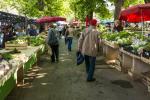
COVEROLIVE Operational Group: Adoption of ICTs and new adapted plant covers to improve the soil and biodiversity of olive groves
- Type Operational group
- Status In progress
- Execution 2022 -2024
- Assigned Budget 297.911,15 €
- Scope Autonómico
- Autonomous community Andalucía
- Main source of financing CAP 2023-2027
- Project website GO COVEROLIVE
- Documentation phase: Characterization of the main environmental problems in olive groves and proposal of action measures. Collection of initial information and zoning of the area of the maps to be generated. Characterization of the needs of sector users regarding soil management, vegetation cover, and olive grove biodiversity.
- Field phase: Selection of demonstration fields. Co-design between the user and the tool developer. Implementation and management. Definition of the analysis tool's data model. Technological development, analysis, and sampling.
- Dissemination phase: Training and information transfer actions.
The objective is to develop a farm management advisory system that serves as a tool for farmers to address the problems they face on their farms and how to address specific issues related to soil management. The aim is to address problems of erosion, soil loss, biodiversity and ecosystem services, and climate change through the implementation of specific vegetation cover and new technologies in olive groves.
- Coordinator/entity name: DCOOP Andalusian Cooperative Society
- Postal address: Córdoba-Antequera Highway s/n
- Coordinator/entity email: josemaria.santisteban@dcoop.es
- Telephone: 952841451
The promotion of good agricultural practices in olive cultivation in Andalusia fosters more efficient management of natural resources by reducing the impact on agricultural systems and the use of inputs, which directly impacts environmental improvements not only for the more than 1.6 million hectares dedicated to this crop, but also for the agricultural environment in general. The use of crop residues to cover and protect the soil from erosion provides a significant amount of organic carbon. The improvements in fertility and organic carbon content derived from these plant residues will reduce fertilization needs and generate a more biodiverse ecosystem, with richer ecological niches and more refuge areas. The use of information and communication technologies (ICTs) to predict erosion on farms and the implementation of land covers best suited to individual conditions will contribute to optimizing the agro-environmental benefits of these measures.
- DCOOP Sociedad Cooperativa Andaluza
- ceiA3 Campus de Excelencia Internacional Agroalimentario (opi01.op@ceia3.es)
- Agresta S. Coop (agresta@agresta.org)
- SEO/BirdLife (gestion@seo.org)
- Fundación Patrimonio Comunal Olivarero (direccion-gerencia@pco.es)
- Cantueso Natural Seeds (info@cantuesoseeds.com)
- DCOOP Sociedad Cooperativa Andaluza







